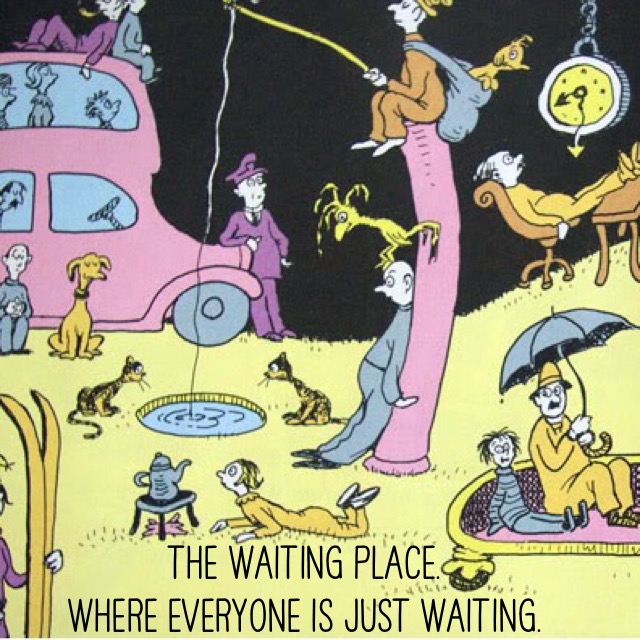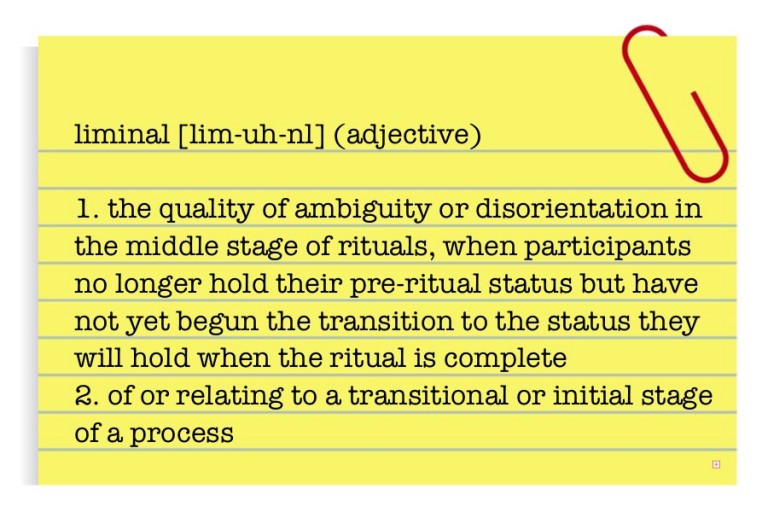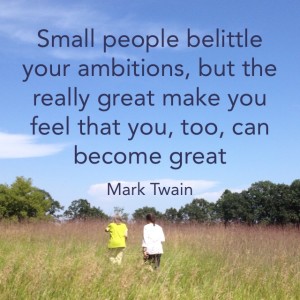by Heather Plett | Oct 19, 2016 | journey

As a coach and facilitator, I have the honour and privilege of walking alongside people on the journey to healing and transformation. As I hold space for them, they teach me many things.
One of the most important things I’ve learned in this work is that the journey takes time – sometimes many years – and cannot be rushed. I’ve also learned that each person’s journey is unique and what works for one person may not work for another.
This week, during the Open Heart, Moving Pen online writing course, one of my clients (who prefers to remain anonymous) shared a story she’d written that moved me (and other course participants) deeply. Not only is it a powerful story, but it marks a profound transformation for this particular client. She started working with me a year ago (as a coaching client and workshop participant), and the work she has done since then has been awe-inspiring and exciting to witness.
BUT… none of this happened overnight. According to her, “it’s actually been 7 years of really deep work with 15 years of healing work before that.”
She is ready to do beautiful healing work in the world because she focused on her own healing work first. Like a butterfly emerging from a long time in the chrysalis, She is bursting forth with strength and beauty as a writer, leader, and healer.
She asked me to share what she wrote because “it wants to be out in the world, and is not letting me do anything else until I send this off.” It’s a very personal story and she’s not quite ready to attach her name to it, but if it moves something in you, I welcome you to send me a note and I will pass it on to her.
Here it is. I offer a trigger warning as some of the content may be hard to read.
The complicated stories of my past
Why am I not more enraged by this talk about grabbing pussy? Why does it seem normal for a man to take what he wants from a woman?
I know the answer, but don’t want to admit I was taught that’s the way men are.
My dad, the one person in my life who liked spending time with me, enjoyed my company, talked to me like I was an adult. My dad, who taught me how the world works, at least what he’d figured out so far. His one cardinal rule: men cannot help themselves when they see a beautiful woman (or young girl). If they’ve got an urge, they WILL satisfy themselves with whoever’s available. If it doesn’t hurt, if it’s not penetration, it’s OK, it won’t cause any problems, and besides, she LIKES it….
I don’t know which was worse, the fact that he had me caress and lick and suck him, or the fact that he stroked me and my young body responded with pleasure. Just like when he tickled me ruthlessly and insisted that I must like it because I was laughing. He could see my body reacting to his stroking and it confirmed his belief that since I was enjoying the intimate contact, it was harmless.
Equally harmless, in his opinion, was his dalliance with other women. What’s a quick tumble with his secretary on her desk to a preschooler who’s already been a participant? “Don’t worry about her” he said when the secretary looked at me with concern, “She won’t care. She’s seen it before.”
Here’s the thing, this man was the one person in my life who treated me like a person (when he wasn’t treating me like a sex object, of course). Everyone liked him. He was a favorite professor of many students, always making time to help them get through their coursework. He was proud of the diversity of his small department. He annoyed his antsy daughter and anxious wife by starting up conversations with workmen, secretaries, garbage men, everyone he met. In addition to being his precious daughter and best friend, he treated me as the son he never had, teaching me woodworking, basic car repair, how to throw a ball.
After his death several women told me how he was the one adult in their lives who listened to them when they were young, asked questions about their lives, made them feel important. None of them mentioned any sexual behavior on his part; either it didn’t happen with them or their memories of the contact were overshadowed by being seen and validated by an adult. Given my memories, I’m suspicious that it was the latter; when there is no closeness in a young person’s life, the touching is simply a price to be paid for closeness.
To this day, and he’s been dead several years now, I sense that his spirit still doesn’t understand that what he did was wrong. He knew to tell me to keep it a secret, he knew my mom wouldn’t approve, but he was convinced that it was OK, at least until I neared puberty. At some point before puberty he did stop the incest (and that was in some ways agony, because I suddenly lost the only intimacy in my life and I felt deserted), but he continued to teach me. When we watched TV he would repeatedly point out how the women were dressed and acting, and that they deserved whatever attention they got from men. He also taught me that men are weak and easily wounded, that they need women to take treat them gently so they don’t fall apart.
So I learned that being feminine is dangerous: that high heals, makeup, clothing that shows any skin or cleavage, are come-on signals and will get full attention from men. And that if I talked back or resisted they would be devastated and it would be my fault.
The surprising thing? That this story is less painful than the humiliation and shame I encountered at school for being quiet, klutzy, smart, weird. It’s less painful than the teasing and tormenting from my cousin and the neighborhood kids. Less painful than the years of avoiding looking people in the eye because they would see my secrets.
I cannot hate this confused man who raised me and confided in me. Though I did hate him when the memories first started surfacing, I now pity him, and love him, and thank him for helping me understand the mentality of confused patriarchal men trying to make sense of the world. And I wonder… If my dad could do this, how many other girls (and boys) had similar experiences with otherwise kind men?
by Heather Plett | Sep 5, 2016 | journey

Sometimes, when you’ve read too many deep thinkers and thought too many deep thoughts, you just have to go back to Dr. Seuss for some clarity. While writing the first three chapters of my book on holding space in the last few weeks, I was puzzling over how to describe liminal space. I finally went back to this…
You can get so confused
that you’ll start in to race
down long wiggled roads at a break-necking pace
and grind on for miles cross weirdish wild space,
headed, I fear, toward a most useless place.
The Waiting Place…
…for people just waiting.
Waiting for a train to go
or a bus to come, or a plane to go
or the mail to come, or the rain to go
or the phone to ring, or the snow to snow
or waiting around for a Yes or No
or waiting for their hair to grow.
Everyone is just waiting.
In the first chapter of the book, I wrote about the liminal space we were in when we were expecting Mom’s death (an expansion of the blog post that was the catalyst for this book). Mom was in that liminal space herself (not quite dead, but no longer quite alive) and we were in that space with her) not quite bereaved and yet no longer able to participate in full relationship with her).
Inspired by Dr. Seuss, I wrote my own version…
We were waiting.
Waiting for her breath to change
or the pain to come
or the song to end
or the light to change
or the birds to visit
or the night to come
or the nurse to say “it’s almost over”.
Just waiting.
Ironically, (or perhaps serendipitously), while I’ve been writing these chapters, I’ve been in another kind of Waiting Place. This time, I am “not quite divorced and yet no longer in a marriage”. It’s been a summer of waiting. Waiting for divorce lawyers to draw up separation papers, waiting for the bank to clear the mortgage, waiting for the real estate lawyer to draw up new papers for the house, waiting for the land transfer title to go through so that I own the house. Each waiting period has been compounded with at least one of the parties involved going on vacation, so what should have taken a few weeks has dragged on for six months.
Last winter, I decluttered and repainted the interior of my house. Anticipating the new flooring that we badly need, I moved all of the living room furniture into the garage before painting. But then it took months longer than I expected to push all of the paperwork through, so the floors still aren’t finished and the furniture is still in the garage. My living room, quite literally, feels like The Waiting Place. (In fact, a friend dropped in to pick something up and thought she had the wrong place because it looked like we’d moved out.) “Waiting for the bank to call. Waiting for the lawyer to return from a month-long vacation. Waiting for the old carpet to be torn out. Waiting for the furniture to be moved back in. Everyone is just waiting.”
It’s been frustrating and what little patience I had at the beginning of the summer has been stretched to the limit. A person can only take so much of The Waiting Place. It’s been wreaking havoc with my emotions, bringing up old fears and frustration, and getting in the way of my most important relationships.
Finally, today, I decided it was time to do what I tell my coaching clients to do when they’re in the liminal space between what was and what is yet to come – stay present for what’s right now, find the tools and practices that help with processing, and open myself to what wants to emerge out of the liminal space.
For the first time in a long time, I took out my mandala journal and created a new mandala for the liminal space. It helped. Here’s a mandala journal prompt that I created out of my own process…
Liminal Space – a mandala journal prompt

In anthropology, a liminal space is a threshold. It’s an ambiguous space in the middle stage of rituals, when participants no longer hold their pre-ritual status but have not yet begun the transition to the status they will hold when the ritual is complete. That liminal space finds us between who we once were and who we are becoming. It’s disorienting, uncomfortable, and it almost always takes far longer than we expect.
Much like The Waiting Place in “Oh The Places You’ll Go“, it feels like “a most useless place”, but it’s not. It’s a time of hibernation, a time of transformation, a time of resting, and a time of deep learning.
Nobody teaches us more about liminal space than the lowly caterpillar. Not knowing why, and not having the capacity to imagine its future as a butterfly, a caterpillar knows only that it must surrender, shed its skin, create the shell of a chrysalis, and then dissolve into a formless, gel-like substance awaiting rebirth.
The liminal space is about surrender. It’s about releasing the caterpillar identity before we have the vision for the butterfly. It’s about falling apart so that we can rebuild. It’s about daring to go into the darkness so that we can, one day, emerge into the light. It’s about trusting Spirit to direct the transformation.
One of the most critical things that the caterpillar teaches us in its transformation is that we need the shell of the chrysalis to hold space for us when we fall apart.
We need a protective shell that holds us in our formless state. It keeps us safe in the midst of transformation. It protects us from outside elements so that we can focus on the important internal work we need to do. It believes in the possibility for us even before we have the capacity to believe it ourselves.
When we enter our own chrysalis, whether that is the waiting place of divorce, grief, pregnancy, job loss, career change, graduation, children moving away, or any number of human experiences, we must build our own chrysalises that hold the space for our transformation. Like a patchwork quilt, we stitch together the people or groups who hold space for us (family, friends, pastors, therapists, coaches, churches, sharing circles, etc.), the practices that help us hold space for ourselves (journaling, artwork, prayer, body work, meditation, etc.), and the spaces which make us feel safe for transformation (our home, the park, a church, etc.)
Mandala Prompt
 1. Draw a large circle and a second slightly smaller circle inside it.
1. Draw a large circle and a second slightly smaller circle inside it.
2. At the centre of the mandala, glue or draw an image or words that represent the liminal space. (I used an image from The Waiting Place in “Oh, the Places You’ll Go”. Another idea might be an image of a chrysalis.)
3. In the space between the image and the next largest circle, write sentences, words, or phrases that represent what The Waiting Place is like. Explore your emotions, fears, resistance, etc., and also explore your wishes, your opportunities for learning, etc. You can use the following as prompts for starting your sentences:
– I feel…
– I am…
– I fear…
– I want…
– I will…
– I am learning…
– I wish…
(Note: I blurred mine in the image above, since it was a little too personal to share.)
4. Imagine that the outer rim (between the two outer circles) is your chrysalis. Inside the rim, write down all of the people who hold space for you, all of the practices that help you hold space, and all of the places you go when you need to hold space for yourself.
5. Colour/decorate your mandala however you wish. As you are doing so, set an intention for what you wish to invite in as you surrender to the chrysalis. For example, I whispered an intention for more patience and grace as I wait for the next story to emerge.
Want more prompts like this? Sign up for Mandala Discovery and you’ll receive 30 prompts on topics such as grief, fear, play, grace, community, etc.
Interested in more articles like this? Add your name to my email list and you’ll receive a free ebook, A Path to Connection and my bi-weekly reflections.
by Heather Plett | Sep 9, 2015 | circle, growth, journey, Labyrinth
 This week, school is back in session. One of my daughters started today and the other two start tomorrow. Two are now in university and one is in grade 8, her last year before high school.
This week, school is back in session. One of my daughters started today and the other two start tomorrow. Two are now in university and one is in grade 8, her last year before high school.
I can say all of the clichéd things, and mean them… My how time flies! Wasn’t it just yesterday I was changing their diapers? How did it all rush past in the blink of an eye?
The return to school always reminds me of the relentless and dependable forward motion of time. Tick, tick, tick goes the clock. Flip, flip, flip go the pages of the calendar.
Today I was rushing out for last minute school supplies, haircut appointments, musical instrument rental, etc., and in the middle of it all, I wanted to hit the pause button. I wanted to slow down the pace of time, enjoy a few more summer days, and cling to my daughters’ fleeting childhood before it all disappears.
From my daughters’ perspective, still in their formative years, this is the way life is supposed to be lived – growing each year, advancing one grade after the other, stepping always forward on the straight line of time guided by the clock and the calendar. It’s the way we’re all raised – to believe that there is always meant to be forward movement. That’s not a bad thing – we want growth to happen.
But that’s only part of the truth and there’s something else I really want my daughters to learn that they probably won’t be taught in school.
Life is to be lived along the spiral and not simply the straight line.
When I was at the beach this summer, working on my book, I spent a lot of time watching pelicans. One of the things I love about pelicans is that, often, they fly across the sky in giant spirals, round and round, adjusting the arc of the spiral just enough each time so that they end at the far side of the sky from where they started.
They do this to conserve energy, riding thermals (updrafts of warm air that rise from the ground into the air), so they don’t have to flap their wings as often. They look so content and relaxed up there, circling round and round with very little effort on their part. High in the sky, they look like mythical creatures, as if they’d climbed out of ancient legends of magicians and shamans. Their shape and the way they move holds both mystery and myth.
That’s the path that I have come to believe is the most true way of seeing our lives. We go round and round, coming back each time to nearly the same place we’ve been, but always with enough of a difference to help us progress forward over time.
How many times have you been in this place you’re at right now? Like the seasons, our lives come back again and again to the harvest of Fall, the dormancy of Winter, the rebirth of Spring, and the growth of Summer. And, like the seasons, we live through the long dark spells, the slow sunny days, the rain, the wind, and the snow. We cycle through grief, through growth, through joy, through surrender, and through ease.
None of the seasons lasts forever. All of them change us a little before we begin the spiral again.
If you are in a place you feel like you’ve been before – whether it’s another cycle through grief, restlessness, waiting, or fear – don’t despair. You’re simply spiralling through the sky, learning what you need to from this trip around the circle, and moving a little further each time.
If you were traveling up a mountain, you’d be best to take the spiralling path, adjusting to the altitude, not tiring yourself out too quickly. Like the pelicans floating on the thermal air, you conserve your energy by not rushing straight ahead. You also learn more and see more that way. This is the way life is meant to be lived.
Don’t rush through, even though the path might seem hard right now. Take what you need from this time, and let it unfold in the fullness of time.
If you want to take a closer look at your own spiral path, I invite you to join us for the October offering of The Spiral Path: A Woman’s Journey to Herself.
Interested in more articles like this? Add your name to my email list and you’ll receive a free ebook, A Path to Connection. I send out weekly newsletters and updates on my work.
by Heather Plett | Oct 3, 2014 | Beauty, growth, journey, Spirituality, Uncategorized, Wisdom
 I was raised on a healthy dose of “only a sinner, saved by grace”. Again and again the Sunday School songs reminded me to carry the shame of the sin that had separated me from God. I was nothing without salvation – a wretch, a lost soul, a disgrace.
I was raised on a healthy dose of “only a sinner, saved by grace”. Again and again the Sunday School songs reminded me to carry the shame of the sin that had separated me from God. I was nothing without salvation – a wretch, a lost soul, a disgrace.
On top of that, I was a woman – reduced to second class in the eyes of a male (understanding of) God. Not good enough to have my own voice. Not strong enough to lead without a man as the head.
And then, to add to those stories of unworthiness and submissiveness, I was a Mennonite, taught to be a pacifist, discouraged from standing up for myself. Turn the other cheek and don’t rock the boat.
Let’s not forget that I’m also a Canadian, and people in my country place politeness high in our values.
That’s a lot of old stories that contribute to my “I am worthless” back story.
Now…I’m not going to argue the theology or “rightness” of any of those belief systems – I’m just speaking from my own experience here. I’m just saying that it’s hard to emerge from a history like that with a healthy self-confidence and a belief in one’s worthiness.
It took a lot of personal work to start telling myself other stories. It took a lot to begin to believe that I was worthy of love, that I was equal to men, that I could believe in a God that was both masculine AND feminine, and that I was “fearfully and wonderfully made”.
For awhile the pendulum swung in the other direction. I started to embrace those self-help books that told me that I am awesome, I am powerful, and I can do anything I set my mind to. I started to believe that I was a self-made woman and that I didn’t need faith in a God who made me feel worthless.
But the other end of the pendulum wasn’t comfortable for long either. If I am awesome, than I don’t need other people. If I am perfect the way I am than I can get away with treating people poorly and not cleaning up after myself. If I can do anything I set my mind to, then I don’t need grace and I don’t need God and I certainly don’t need to pay attention to the wounds all of us AWESOME people are inflicting on the world.
And what if I don’t FEEL awesome all of the time? Then do I send myself back to the “unworthy” end of the pendulum because other people have figured out this self-help stuff better than I have? And what about when I do something that is really selfish – do I simply excuse myself with an “I am worth it” mantra? Do I never hold myself accountable for my screw-ups or unkind acts? And if there’s no need for grace, then how do I pick myself up after a particularly horrible failure?
Gradually the pendulum swung back, but this time it landed somewhere in the middle. This time it stopped in the grey area – the paradox.
- I am beautiful AND I have a lot of flaws.
- I am smart and capable and have a lot of gifts AND I need to be forgiven when I make mistakes.
- I am loving and kind AND sometimes I do things that are downright mean and hurtful.
- I have been fearfully and wonderfully made AND I need a lot of grace for those times when I don’t act or feel like it.
- I am full of wisdom AND I rely on God/dess to help me use that wisdom with discernment.
- I am a sinner AND I am a saint.
- I am good enough as I am AND I need to keep working to improve myself.
- I am as worthy as any man on earth AND I want to keep living on a planet where both genders are needed.
The grey area is a good place to live. It feels comfortable, because I don’t need to be perfect, but I also don’t need to believe that I am worthless. It’s the field that Rumi talks about – I want to lie down in that grass with you.
“Beyond our ideas of right-doing and wrong-doing,
there is a field. I’ll meet you there.
When the soul lies down in that grass,
the world is too full to talk about.
Ideas, language, even the phrase ‘each other’
doesn’t make sense any more.”
Rumi
p.s. There is still space in tomorrow’s Openhearted Writing Circle, if you want to explore how your own writing can help you get to an “I am enough” place.
by Heather Plett | Sep 16, 2014 | Community, Leadership
“Keep away from people who try to belittle your ambitions. Small people always do that, but the really great make you feel that you, too, can become great.” ~ Mark Twain
Tomorrow, after I teach a storytelling workshop for a national non-profit, I’ll be heading out on a special annual pilgrimage. A twelve hour road trip in good company will take me to the Black Hills of South Dakota, where I will gather once again with the women of Gather the Women.
This will be my third year in this circle of women. I can hardly wait to be with them again. When I am in this circle, I feel fed, held, honoured, encouraged, and strengthened. Even though we only see each other once a year, women in this circle have supported me through the grief of losing my mother, encouraged me in the growth of my business, and cheered for me every time I’ve done something brave.
But the primary reason why I keep going back?
They call me into my greatness.
These women want me to succeed. They want me to be bold, strong, and successful. They want me to make a mark in the world. They believe wholeheartedly in my work and cheer with their whole hearts when I do it well.
Why? Because MY work is OUR collective work. And because when I succeed, we ALL succeed.
 That’s the way it is when you surround yourself with powerful women who aren’t threatened by other people’s power. We succeed together and we leave the world a better place.
That’s the way it is when you surround yourself with powerful women who aren’t threatened by other people’s power. We succeed together and we leave the world a better place.
Are you longing to surround yourself with that kind of support?
I can help. What those women do for me, I want to do for you.
I want to call you into your greatness.
I want to cheer from the sidelines as you succeed. I want to nudge you into those places that feel scary but you know are right. I want to help you find your path.
How can I help you?
1. Come join Pathfinder Circle where you’ll find yourself surrounded by other women who are also daring to find their paths and step into their greatness. (It’s an online coaching circle that meets once a week for 8 weeks, starting September 30th.)
2. If you want to step into your greatness in your writing, sign up for Openhearted Writing Circle. (It’s a one-day online writing retreat, on October 4th, that will help you crack open your heart and pour it onto the page.)
3. If it’s one-on-one support you need, sign up for coaching. If you’re a leader/facilitator/teacher/coach, check out this offering.
Many years ago, when I was in my first leadership position, I realized that helping other people shine is just as good as shining yourself. Because we all benefit from each other’s glow.
Let me help you shine.




 1. Draw a large circle and a second slightly smaller circle inside it.
1. Draw a large circle and a second slightly smaller circle inside it.

